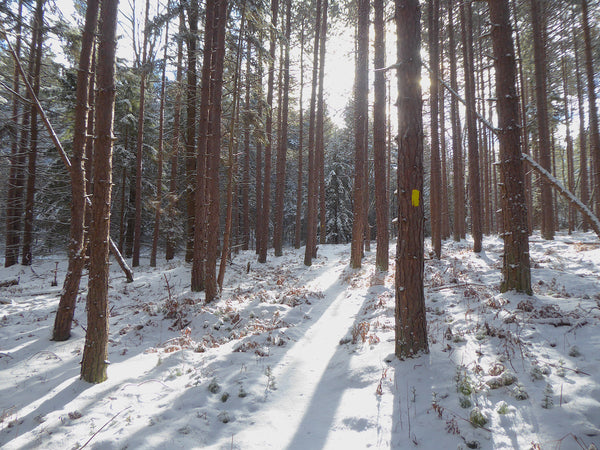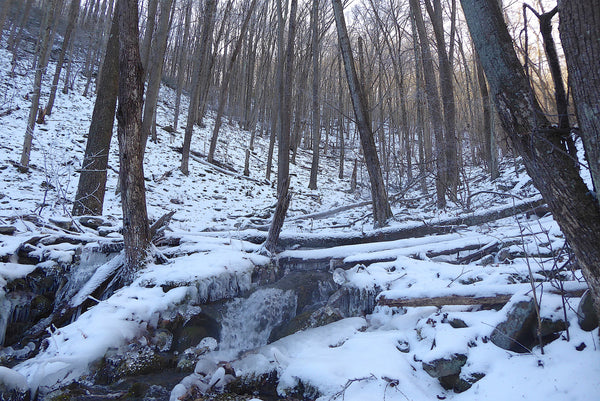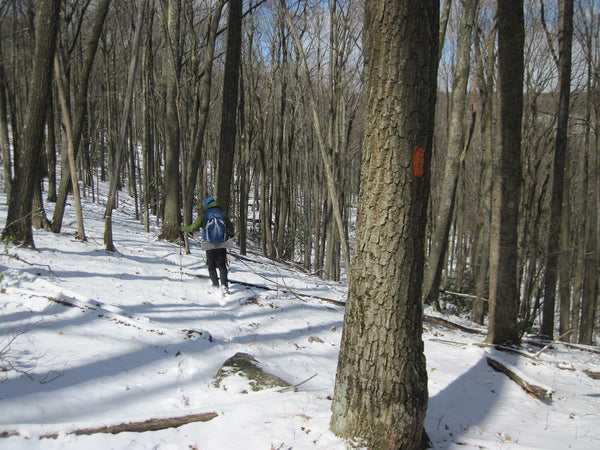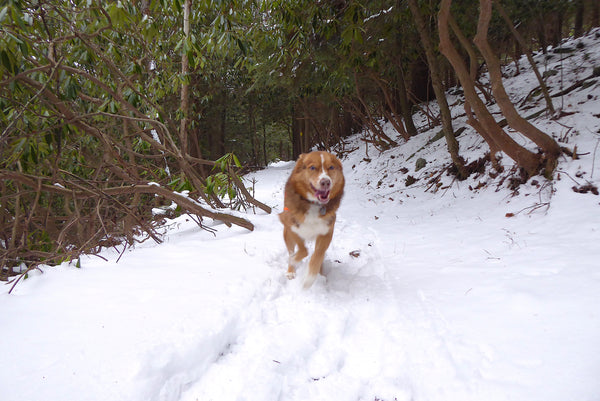Your Cart is Empty

Gearing Up For A Winter Adventure
January 06, 2024 4 min read
Winter is here! Are you prepared for winter adventures?
A winter backpack should carry more than just the usual winter gear suspects like skis, snowshoes, gloves, and warm hats. Winter is a fantastic time for fun in the outdoors, but small mistakes can add up to big problems for explorers who aren't prepared for winter weather.
Stay warm and avoid unnecessary disasters with these gear tips below:
Stay dry is rule #1
A wet body in a cold environment is a recipe for disaster. Stay dry with breathable clothing that is not made of cotton. Multiple layers of lightly insulated clothing will allow you to regulate your warmth better than just one or two layers of heavily insulated clothing. A windproof or waterproof outer layer helps to shield the cold air and winter winds. Pro tip: Pack a super warm jacket, an extra pair of socks (doubles as extra mittens) and a survival blanket (space blanket), just in case you end up staying out later than expected.
EVERYTHING freezes in winter
It's just science, really. Batteries, liquids, shoes, clothes...everything will freeze if the weather is cold enough. Cold batteries mean less juice - they aren't really dead, but when they get cold enough they act like they are. Keep your cell phone, GPS, headlamp, and other electronics in clothes pockets near your body to stay warm. Food will also freeze, so keep that close too. That energy bar can break a tooth if it's frozen! A water bottle cap will freeze shut quickly so store the bottle upside down with the cap securely tightened. (again, this is science). Pro tip: Keep your water reservoir hose clear of water and tuck it into your shirt so water doesn't freeze in the line.
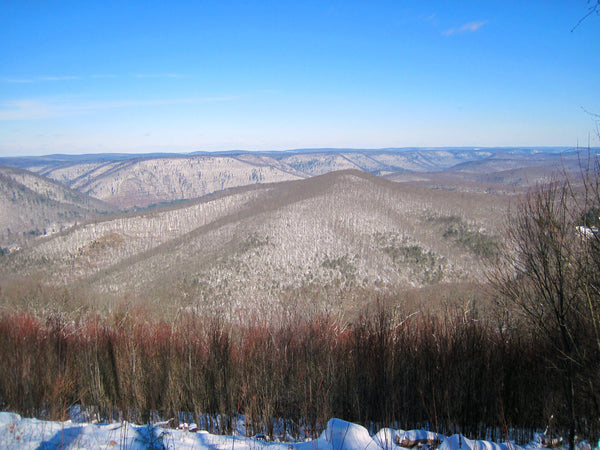
It gets very dark very fast ~ light up your winter gear!
Winter is the season of extremes. A bluebird sky day with snow requires sunglasses, but the sun can disappear as early as 4:15PM in early winter. Be sure to have ample light sources and extra batteries for the long, dark nights. Pro tip: An LED latern for the group eliminates the relentless issue of blinding each other with headlamps.
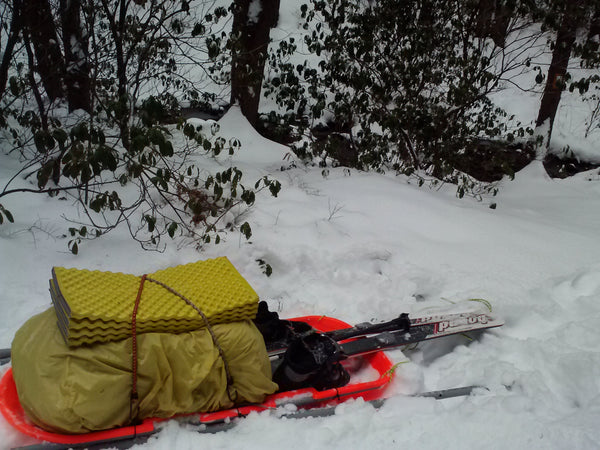
Plan ahead for bail outs ~ help is a long way off
Remember that you may be relying on a device with moving parts, snowshoes or skis for example, to complete your trip. A gear malfunction can mean a long and difficult trek back to the car. Forests are less accessible for emergency responders when the roads are covered with snow and ice. This is the time of year to grab your Lizard Map and plan loops with multiple road-crossings and bail-out trails. This way you can cut the trip short without difficulty if needed. Pro tip: If you're going out into the backcountry, it is a good idea to know the signs of hypothermia and learn rescue techniques such as the "burrito wrap".
Get moving and dress warm for breaks
Winter time work rate and travel speed is usually dictated by the temperature. The main goal is to work hard enough to stay warm. It is better to slow down, take off layers, and take breaks than to break a sweat. Remember to stay as dry as possible. And don't forget to eat! Keep yourself well fed with energy packed snacks and well hydrated with water. Pro-tip: The first step to taking a break in the winter is putting on all of your warm layers immediately. You worked hard to make yourself warm, so don't let the cold winter air steal those earnings. Bundle up and enjoy the view!
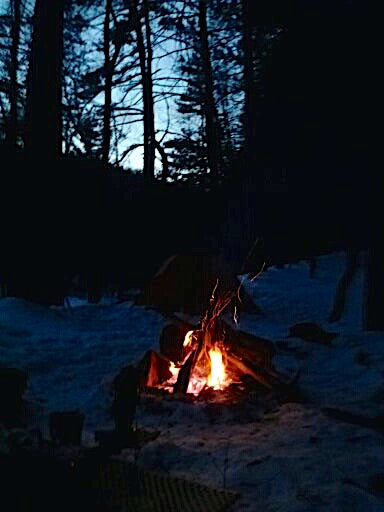
Prepare well and camp overnight!
Winter camping can be a delightful experience (honestly). Bring a wide mouth nalgene bottle and fill it with hot water before going to bed. Hold the water bottle close to your body all night to stay warm. Waking up and getting going in the morning is the hardest part about winter camping. To mitigate this issue, complete every possible camp task while in your sleeping bag. Once you step out of your warm and cozy cocoon, get moving immediately and don't stop until your body is warm again. Bring two sleeping pads for better insulation from the cold ground. Pro tip: Hand and foot warmers are worth their weight in gold.
Should you bring your dog?
Most dogs love snow and they love exercise. If your dog is a seasoned outdoor explorer, you may want to bring them on your winter adventures. Remember that your canine companion's needs are different depending on the season. Use your judgement and remember to tune in to your dogs unique needs. For instance, it may be a good idea to outfit your pup with blaze orange since multiple hunting seasons are open through January. Keep a close eye on their paw pads as dogs feet can be damaged by freezing and ice can be dangerously sharp in some conditions. Even the most seasoned and enthusiastic winter hiking dogs need extra fuel and hydration on winter hikes, so don't forget water/food/snacks for your travel companion. Pro-tip: Camping overnight? If you bring a closed-cell foam sleeping pad for the pooch they will love you forever, and they may not actually try to climb in your sleeping bag.
Start Planning Your Next Adventure Today with Purple Lizard Maps
Tag Purple Lizard on your adventures on Instagram @purplelizardmaps, and keep in touch on Facebook & with Lizard News
Subscribe
Sign up to get the latest on sales, new releases and more …
SIGN UP FOR LIZARD UPDATES
Join the Purple Lizard community & stay in the loop on the latest Purple Lizard product offerings, discounts, adventure ideas and more.


